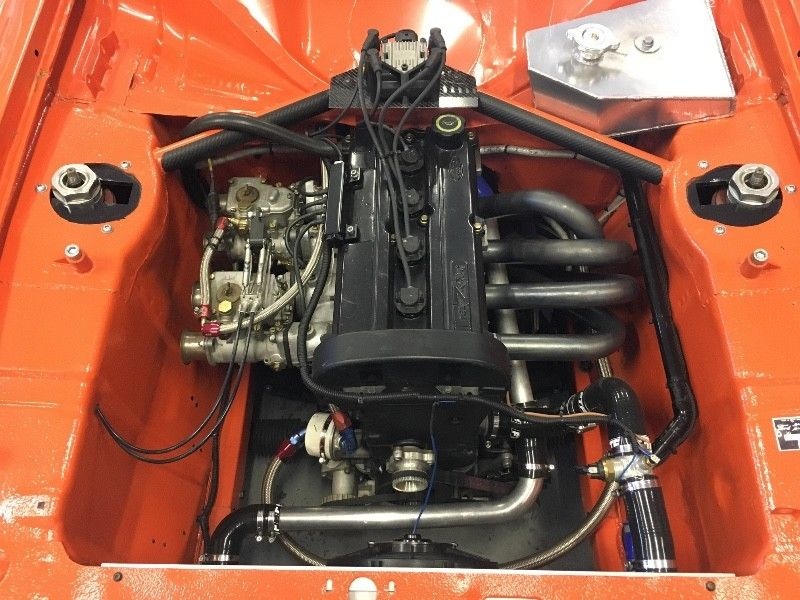Drive with Confidence: Toyota Tazz Engine for Sale, Genuine Parts Only
Wiki Article
Engine Acquiring Specialist Tips on Selecting the Right Engine for Your Certain Needs
Picking the ideal engine for your specific needs involves a complicated interplay of variables that go beyond plain horse power numbers. By delving into the details of power versus performance, evaluating fuel ratings, and budgeting for long-term expenses, one can absolutely enhance their engine selection.Power Vs. Efficiency: Locating the Equilibrium

When picking an engine, it is vital to strike an equilibrium in between power and effectiveness to satisfy your certain needs effectively. Power refers to the engine's ability to generate energy for propulsion, determining elements like acceleration, lugging capability, and overall performance (Toyota Tazz Engine For Sale). On the various other hand, performance connects to how well the engine uses gas to generate power, affecting elements such as fuel economy and ecological friendliness
Attaining the ideal equilibrium between power and efficiency is crucial since an engine that is as well effective may eat excessive fuel, causing greater operating expenses and unnecessary stress on the setting. Conversely, an engine that focuses on efficiency over power might result in slow-moving performance, specifically in requiring scenarios like lugging heavy lots or driving uphill.
To make a notified decision, consider elements such as your common driving problems, the intended use of the automobile, and your individual choices. By evaluating your top priorities and needs, you can select an engine that strikes the excellent balance in between power and efficiency, making certain optimal performance while lessening environmental impact and operating expense.
Comprehending Engine Size and Kind

Furthermore, engine kind plays an important duty in figuring out the performance features of an engine. Common engine kinds consist of inline engines, V engines, and rotating engines, each with its unique benefits and disadvantages. The engine type affects aspects such as the engine's size, weight circulation, and power distribution. Recognizing the interaction between engine dimension and type is vital in selecting an engine that lines up with your certain needs and top priorities, whether it be power, effectiveness, or a balance of both.
Consider Your Lorry's Demands
If you are looking for an engine for a durable truck that will certainly be made use of for towing, you will certainly require a powerful engine with high torque capabilities. On the other hand, if you are picking an engine for a portable car largely utilized for city commuting, fuel performance may be a more vital factor to take into consideration.
Assessing Gas Performance Rankings
Evaluating gas effectiveness rankings is an important aspect of picking the ideal engine for your vehicle, ensuring expense savings and environmental sustainability. Gas efficiency ratings, typically measured in miles per gallon (MPG) for fuel engines or kilowatt-hours per 100 miles (kWh/100 miles) for electric engines, show exactly how far a vehicle can take a trip on a particular quantity of gas or power. Higher MPG or lower kWh/100 miles worths symbolize extra effective engines, translating to reduced gas prices and lower carbon exhausts.Furthermore, contrast various engine alternatives within the very same lorry class to recognize the most economical selection. Aspects such as engine dimension, weight, the rules of aerodynamics, and hybrid or electrical capacities can all influence fuel effectiveness.
Budgeting for Long-Term Prices
Purposefully planning for long-term expenditures is crucial when picking an engine, guaranteeing economic sustainability over the automobile's life-span. While the initial acquisition cost of an engine is a substantial variable, it is important to take into consideration the lasting costs related to upkeep, fixings, and fuel usage. Choosing a more fuel-efficient engine may have a higher upfront cost however can result in significant financial savings in time. Routine maintenance, such as oil modifications, filter replacements, and tune-ups, is vital to keep the engine running smoothly and efficiently, reducing the risk of pricey repairs down the line.In addition, researching the availability and price of substitute parts for the selected engine is vital in budget plan planning. Engines with inexpensive and conveniently available components can considerably impact long-term upkeep expenses. Additionally, considering the engine's toughness and expected life expectancy can aid stay clear of unforeseen substitute expenses in the future. By carefully budgeting for these long-term expenditures and factoring them into the decision-making process, individuals can choose an engine that not only satisfies their immediate requirements but additionally continues to be cost-efficient throughout its life expectancy.
Final Thought
To conclude, picking the best engine for your particular demands needs balancing power and effectiveness, recognizing engine dimension and kind, considering your vehicle's requirements, reviewing fuel efficiency scores, and budgeting for lasting prices. By meticulously taking into consideration these factors, you can make sure that you pick an engine that meets your needs and offers ideal performance for your automobile.To further fine-tune the option procedure of an engine that strikes the optimum equilibrium in read between power and effectiveness, it is important to delve into the intricacies of understanding engine size and kind. Engine dimension refers to the overall volume of air and fuel that can be pushed through the engine cylinders. Typical engine types include inline engines, V engines, and rotary engines, each with its one-of-a-kind benefits and disadvantages. Recognizing the interaction between engine dimension and kind is vital in choosing an engine that lines up with your particular demands and concerns, whether it be power, efficiency, or a balance of both.
Fuel performance ratings, typically gauged in miles per gallon (MPG) web for gasoline engines or kilowatt-hours per 100 miles (kWh/100 miles) for electrical engines, suggest just how much blog here an automobile can travel on a details quantity of fuel or power.
Report this wiki page